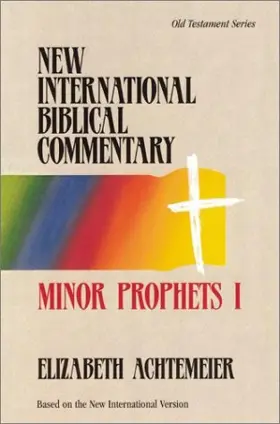

Minor Prophets I
in Understanding the Bible Old Testament
Pages
416
Publisher
Hendrickson
Published
1/1/1997
ISBN-13
9780943575056
Collections
This book appears in the following featured collections.
- Commentaries I Would Not Do Without by R. Hansen
- Commentaries by Female Scholars by John Dyer
Reviews
The New International Biblical Commentary (NIBC) is among the better series of brief commentaries on the market. It typically employs well known scholars and is targeted towards lay people and pastors. If her section on Jonah is indicative of the entire volume, Achtemeier has given us a strong volume on the first six of the minor prophets. I found her writing to be clear, compact, and powerful. I found her commentary a great supplement to exegetical works, as her theological insight was keen. I especially enjoyed her comments on Jonah's prayer in Jonah 2:2-9.
This commentary will help you see the forest for the trees. Her explanations are grounded in what she sees as the major theological themes of Jonah, God's free grace and his love. While she focuses mainly on theology, there is some exegetical help, but it is limited.
Overall I greatly enjoyed this commentary. Even when I didn't agree with the exact conclusions she came to, she helped me wrestle with the theology of Jonah which makes the book a resounding success. I give it 5 stars out of 5.
[Full Review]
Elizabeth Achtemeier's NIBC (1996) on Hosea is packaged with Joel through Micah. She had already done the Interpretation volume on Nahum through Malachi, so this volume completes her work on the entire minor prophets collection. Achtemeier is a moderately critical scholar with an excellent reputation. Her work in both of these volumes tends to focus on historical background, literary features, and theological significance. Her theological views tend to be somewhat conservative, but her views on other issues, sometimes are called introductory issues (e.g. authorship, dating, unity of books), are less conservative. She tends to focus on the theological mesage in the final form of the book, but the other issues do enter the discussion at times.
[Full Review]

